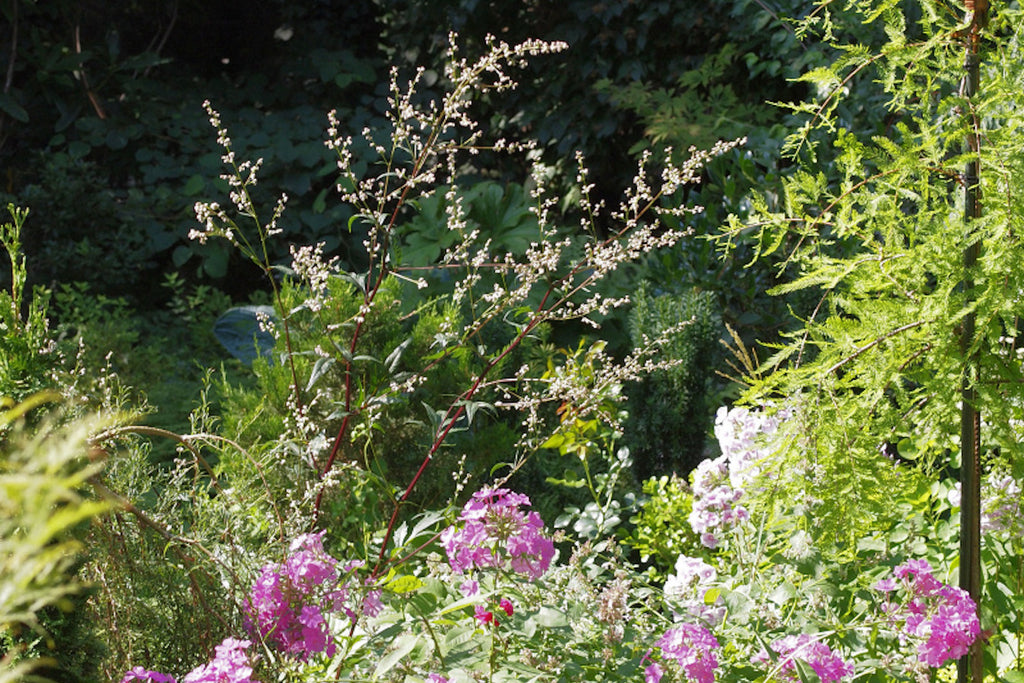


About this cultivar:
Artemisia 'Rosenschleier' provides plentiful small round buds and fluffy, pastel pink blooms that populate gracefully tapered sheaves set against deep purple stems. The elegant, airy flowers contrast with dark green leaves. This elegant airy effect is reflected in the translation of the name from German 'Rose Veil'.
- Position: Full sun, partial shade
- Soil: Dry soil, Almost any soil that is reasonably well drained
- Flowers: August, September, October
- Other features: Interesting Foliage or Fruit, Scented
- Hardiness: H7 - Hardy in the severest European continental climates (< -20°C), Fully hardy
- Habit: Bushy, Columnar or Upright
- Foliage: Deciduous
- Height: 120 to 180 cm (4 - 6 ft)
- Spread: 60 to 90 cm (2 - 3 ft)
- Time to full growth: 5 to 10 years
- Plant type: Herbaceous Perennial, Shrub
- Colour: Green, Silver, Yellow
- Goes well with: Paths, front of borders
About this genus:
Artemisia is a large, diverse genus of plants with between 200 and 400 species belonging to the daisy family (Asteraceae). The name ultimately derives from Artemis, the Greek goddess of the moon, wild animals, and hunting. A more specific reference may be to Artemisia I (or II) of Caria – both Queens and successful Naval Strategists! Common names for various species in the genus include mugwort, wormwood, and sagebrush.
Artemisia comprises hardy herbaceous plants and shrubs that grow in temperate climates of both hemispheres, usually in dry or semiarid habitats. The leaves of many species are covered with white hairs.
It has been mentioned in popular culture for centuries. Artemisia vulgaris (mugwort) was used to repel midges (mug = midge), fleas and moths, intestinal worms, and in brewing as a remedy against hangovers and nightmares. Perhaps caused by drinking absinthe… which Artemisia absinthium is used to make!
Most species have an extremely bitter taste, which discourages herbivory, and may have had a selective advantage. In Shakespeare's Hamlet, the titular character says "Wormwood, wormwood" to comment on the bitter implications of what the Player Queen has just said. Wormwood is even mentioned seven times in the Jewish Bible, always with the implication of bitterness! However, the species dracunculus (tarragon) is widely used as a culinary herb. Other species are used to treat malaria and as sedative.
In the garden they tend to prefer full sun and free draining soil, but most we sell should be fine anywhere – we don’t sell much to Greece. Great for foliage and the front of the border. The small wind-pollinated flowers are also fun!
The largest collection of living Artemisia species, subspecies and cultivars is held in the National Collection of Artemisia in Sidmouth, Devon, UK, which holds about 400 taxa.

